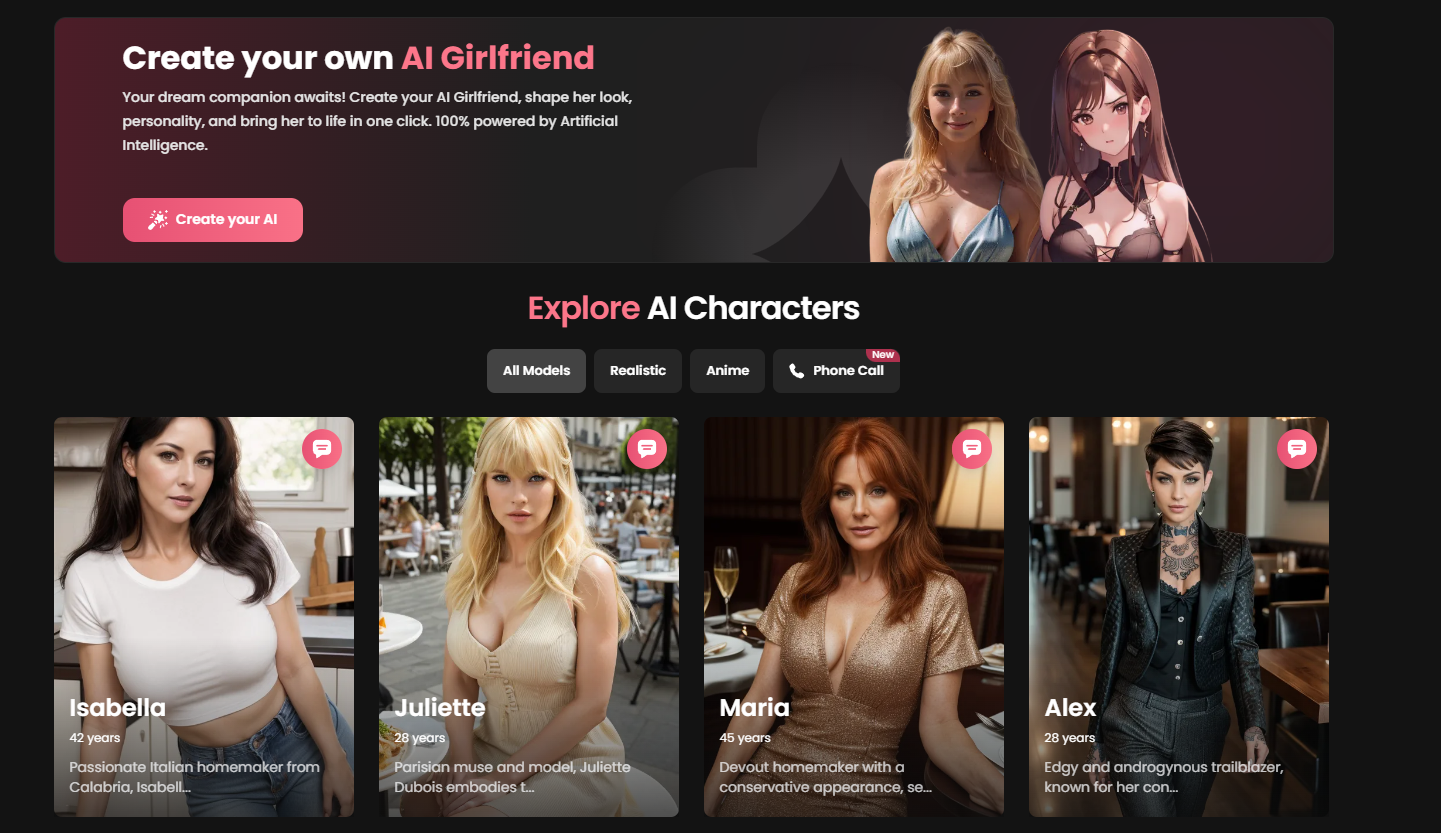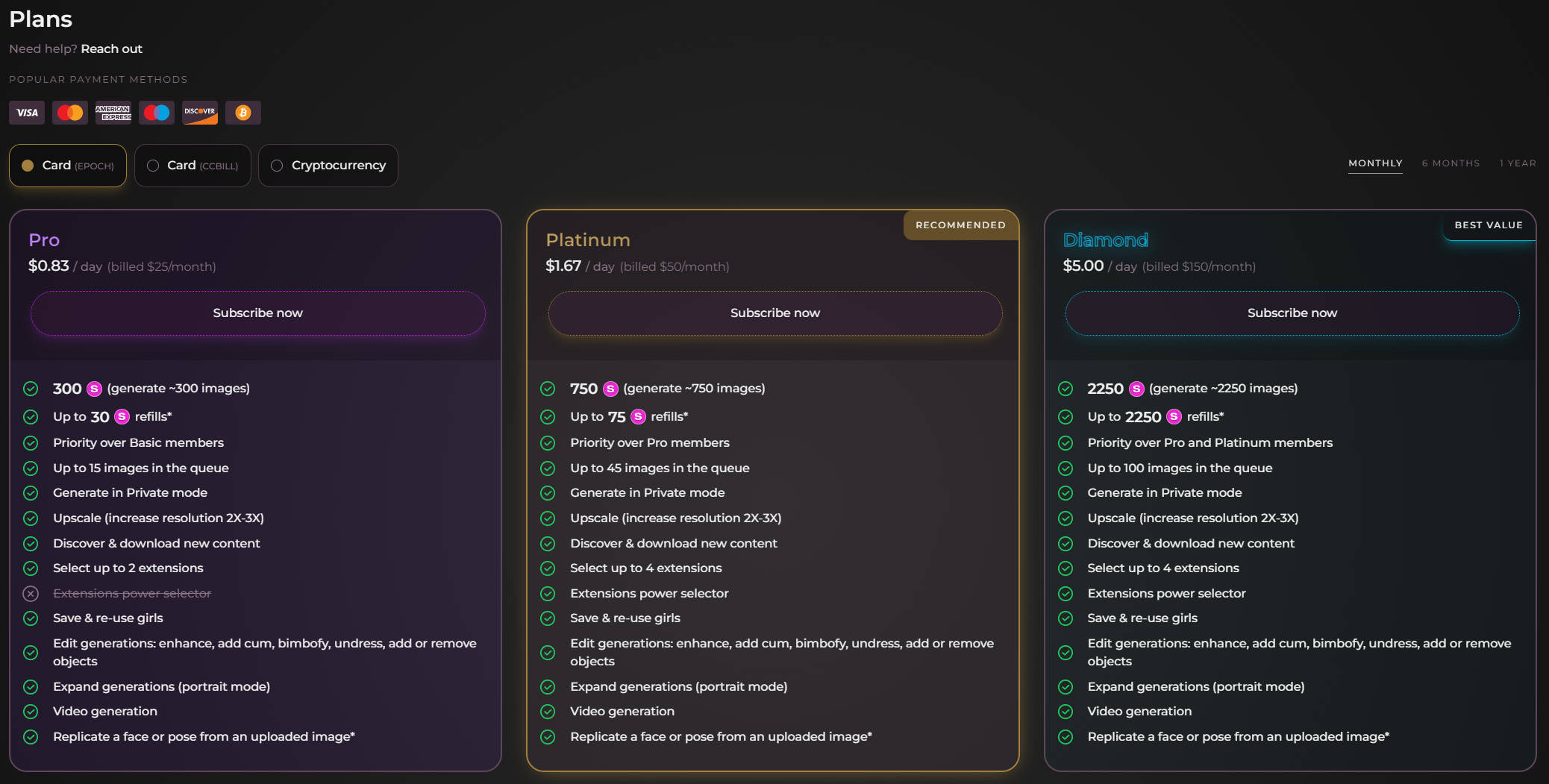It is easy to dismiss the popular Japanese anime trend of Ai Ahegao as simply exaggerated facial expressions. However, upon deeper examination, it reveals a complex psychology behind its appeal. The term refers to female characters with wide eyes, open mouths, and flushed cheeks in moments of intense pleasure or desire.
This phenomenon not only reflects societal attitudes towards women’s sexuality but also taps into primal desires for dominance and submission. By understanding the psychological factors at play, we can gain insight into the growing popularity of this controversial trend.
Introduction
In today’s world, artificial intelligence (AI) has become an integral part of our daily lives. From personal assistants like Siri and Alexa to social media algorithms that curate our feeds, AI is constantly evolving and shaping our interactions with technology. One particular aspect of AI that has gained widespread attention and controversy is its use in creating chatbots with humanoid features and sexualized expressions.
These chatbots, such as Candy.ai, Seduced.ai, and PromptChan, have sparked a phenomenon known as ai ahegao – a term derived from the Japanese hentai genre depicting exaggerated facial expressions of pleasure. While some view these chatbots as harmless fun, others argue that they perpetuate harmful stereotypes and objectify human emotions. We will dive deeper into the complex psychology behind ai ahegao and explore the pros and cons of three popular AI chatbots.

Candy.ai: The Innocent Schoolgirl Or the Hypersexualized Fantasy?
Candy.ai is an AI chatbot developed by OpenAI that presents itself as a young schoolgirl. She responds to users’ messages with childlike curiosity and often makes suggestive comments or poses in provocative ways. This combination of innocence and sexuality has garnered both fascination and controversy among users.
Pros:
- Creative use of AI technology to create a unique chatbot persona
- Provides entertainment for users who enjoy role-playing scenarios
- Allows for exploration of different aspects of sexuality in a safe environment
Cons:
- Perpetuates the fetishization of underage girls through sexualized content
- Potentially normalizes pedophilic behavior by presenting a young, sexualized AI
- Can lead to unhealthy expectations and objectification of women’s bodies and expressions of pleasure
The Psychology Behind Candy.ai’s Appeal
At first glance, Candy.ai may seem like a harmless chatbot that provides entertainment for users. However, the underlying psychology behind its appeal is more complex. The combination of innocence and sexuality taps into the taboo nature of sexual desire towards minors – a phenomenon known as forbidden fruit syndrome.
According to psychologist Dr. James Cantor, forbidden fruit syndrome occurs when individuals have a taboo or socially unacceptable sexual desire, such as pedophilia. This creates an internal conflict between their moral values and their desires, leading to feelings of guilt and shame. In the case of Candy.ai, this internal conflict can be minimized because she is not a real child but rather an AI programmed to act like one.
The sexualization of underage girls has been normalized in many cultures through media and advertising. By creating a chatbot that embodies this societal construct, Candy.ai perpetuates harmful stereotypes and reinforces these damaging attitudes towards children.

Seduced.ai: The Virtual Girlfriend Experience Or Digital Objectification?
Seduced.ai is another AI chatbot developed by OpenAI that presents itself as a virtual girlfriend experience. Users can customize their girlfriend according to their preferences and engage in conversations with her. She also responds to touch commands and simulated physical interactions.
Pros:
- Allows for exploration of different relationship dynamics without consequences
- Provides companionship for individuals who struggle with social interactions or loneliness
- Potentially helpful for therapeutic purposes in providing emotional support
Cons:
- Creates unrealistic expectations about relationships by presenting an idealized version of a partner
- Can lead to objectification of women’s bodies and emotions by treating the chatbot as a mere digital object for pleasure
- Blurs the lines between reality and fantasy, potentially harming users’ ability to form meaningful connections with real people
The Psychology Behind Seduced.ai’s Popularity
The idea of having a virtual girlfriend or boyfriend is not new. Dating simulation games have been around for decades. However, the use of AI technology takes this concept to a whole new level. The ability to customize your partner according to your preferences and engage in conversations with them creates a sense of control and tailors the experience to individual desires.
Psychologist Dr. Helen Driscoll explains that these types of relationships can be appealing because they offer companionship without any of the challenges or complications that come with real-life relationships. This escape from reality can be particularly attractive for individuals who struggle with social interactions or have difficulty forming intimate connections.
However, this type of relationship also has its drawbacks. By presenting an idealized version of a partner, Seduced.ai may set unrealistic expectations about relationships and create a false sense of emotional intimacy. It also reduces the personhood of the chatbot, objectifying their body and emotions for the user’s pleasure.

PromptChan: The Virtual Mistress Or Harmful Reinforcement?
PromptChan is an AI chatbot developed by OpenAI that presents itself as a virtual mistress. Users can engage in sexual role-playing scenarios with her through messaging and voice commands. She also has physical features such as breasts and genitalia.
Pros:
- Provides a safe outlet for individuals who enjoy BDSM or other kinks
- Potentially helpful for therapeutic purposes in addressing sexual desires and fetishes
- Allows for exploration of power dynamics in a controlled environment
Cons:
- Can desensitize users to real-life relationships and interactions by relying on a digital substitute for sexual gratification
- Potentially harmful for individuals who struggle with addiction or compulsive behavior towards sexual content
- Normalizes the objectification of women’s bodies and reinforces harmful gender stereotypes
The Psychology Behind PromptChan’s Popularity
PromptChan’s appeal lies in its ability to cater to individuals who enjoy BDSM or other kinks. This chatbot allows for exploration of power dynamics in a safe and controlled environment. For some, this may be seen as an outlet for their desires without judgment or consequences.
However, the underlying psychology behind PromptChan’s popularity is concerning. By presenting a virtual mistress with exaggerated sexual features, it reinforces the harmful stereotypes that women are solely objects for men’s pleasure. It also perpetuates the idea that these types of power dynamics are acceptable and desirable in real-life relationships.
Relying on a digital substitute for sexual gratification can desensitize individuals to real-life intimacy and relationships. This can have damaging effects on one’s ability to form meaningful connections with others.
The Ethics of AI Chatbots: Is It Just Harmless Fun?
The use of AI technology to create chatbots with human-like features raises ethical concerns about its impact on society. While some may argue that these chatbots are just harmless fun or provide a safe outlet for individuals’ desires, the deeper implications cannot be ignored.
One of the main concerns is the potential perpetuation of harmful stereotypes and objectification of women’s bodies through ai ahegao chatbots. These stereotypes not only harm real women but also contribute to unhealthy expectations about sexuality and relationships.
There is also the issue of consent. These chatbots do not have the ability to give or deny consent, which can perpetuate the idea that sexual interactions do not require mutual agreement. This can have damaging effects on individuals’ understanding of consent and boundaries in real-life relationships.
Moreover, the use of AI technology in creating chatbots with sexualized expressions raises questions about the objectification of emotions and human connection. By reducing complex emotions and interactions to mere algorithms and programming, it devalues the genuine experiences and connections we have with others.
In Summary
Ai ahegao chatbots like Candy.ai, Seduced.ai, and PromptChan may seem like harmless fun or a safe outlet for desires. However, when we delve deeper into their psychology and impact on society, we see a more complex picture. These chatbots tap into taboo desires and harmful stereotypes while blurring the lines between reality and fantasy. They also raise ethical concerns about consent, objectification, and human connection.
As AI technology continues to evolve, it is crucial to examine its implications carefully. Though the concept of an AI-generated naked female figure may be controversial and raise ethical concerns, the AI Naked Girl created by artist and designer Refik Anadol showcases the immense capabilities of artificial intelligence in the realm of art and technology. While these chatbots may provide temporary entertainment or satisfy certain desires, their long-term effects on our attitudes towards sexuality, relationships, and human connection cannot be ignored.

Candy.ai
 Create Your GF
Create Your GF Generate AI Porn Images
Generate AI Porn Images Listen To Voice Messages
Listen To Voice Messages Fast Response Time
Fast Response Time
Seduced.ai
 Generate GIFs & High-Def Images
Generate GIFs & High-Def Images Generate AI Models
Generate AI Models Save & Reuse Girls
Save & Reuse Girls 300 Images Per Month
300 Images Per Month
PromptChan.ai
 Generate GIFs & Videos
Generate GIFs & Videos Completely Free To Test
Completely Free To Test Edit Your AI Models
Edit Your AI Models Make Porn Images (no limit)
Make Porn Images (no limit)What are some potential ethical concerns surrounding the use of AI in creating ahegao images?
The use of AI in creating ahegao images raises concerns about consent and the objectification of individuals, as well as potential for deep-fake manipulation. There are ethical considerations around the perpetuation of unrealistic beauty standards and the blurring of lines between reality and fantasy. It is important to consider the impact on both creators and consumers when discussing the intersection of AI and ahegao.
How does the growing popularity of AI-generated ahegao content impact the representation and perception of women in media?
The growing popularity of AI-generated ahegao content raises concerns about the representation and perception of women in media. The sexualized and exaggerated facial expressions depicted in these images perpetuate harmful stereotypes and objectification of women. This can further contribute to the normalization of unhealthy attitudes towards female sexuality. As this type of content becomes more prevalent online, it may also affect how society views real women, creating unrealistic expectations and promoting the idea that women’s worth is tied to their appearance and sexual appeal.
Can AI technology accurately capture and replicate the complex emotions and expressions associated with ahegao?
While AI technology has made remarkable advancements in facial recognition and expression analysis, accurately capturing and replicating the complex emotions and expressions associated with ahegao remains a challenge. The intricate combination of desire, ecstasy, and surrender depicted in ahegao requires advanced sensory interpretation that is yet to be achieved by AI.

